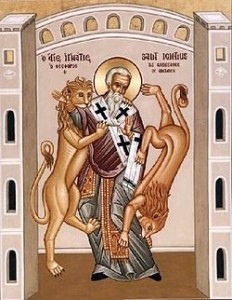Again [Jesus] entered the synagogue, and a man was there who had a withered hand. They watched him to see whether he would cure him on the sabbath, so that they might accuse him. And he said to the man who had the withered hand, “Come forward.” Then he said to them, “Is it lawful to do good or to do harm on the sabbath, to save life or to kill?” But they were silent. He looked around at them with anger; he was grieved at their hardness of heart and said to the man, “Stretch out your hand.” He stretched it out, and his hand was restored. The Pharisees went out and immediately conspired with the Herodians against him, how to destroy him. (Mark 3:1-6)
Green-eyed envy
“They watched him … so that they might accuse him.”
Each year, as Lent approaches, many acquaintances and friends announce that they will leave Facebook and Instagram, Twitter and Snapchat. They plan to take a social media fast.
Though I do not choose to do that myself, I can certainly understand the appeal.
Too often, and especially (it seems to me) among religious types, social media turns into a platform from which to pounce on people’s “mistakes” and “errors” — the things others believe or do that go against the grain.
The Rev. Scott Gunn, executive director of Forward Movement and cofounder of Lent Madness, wrote a poignant post this week titled Practicing Our Faith Online, in the wake of many toxic responses to the news of Supreme Court Justice Antonin Scalia’s death.
He muses, “Maybe we Christians can, and must, do a better job of practicing our faith online. Sometimes I’m the one who needs the reminder that Jesus calls me to practice a love that is not always easy.”
How easy it was for the Pharisees to “watch Jesus … so that they might accuse him,” rather than looking for ways to help their neighbor who suffered.
How easy for us to do the same, unless we soften our gaze (and our hearts).
Hardness of heart
“They were silent.”
Even (perhaps especially) when Jesus draws their attention to the man with the withered hand, the Pharisees refuse to see anything but Jesus’ error.
They won’t even entertain the spiritual question he poses — “is it lawful to do good or to do harm on the sabbath, to save life or to kill?” — because they are sure he is wrong.
“The opposite of faith,” says former Bishop of Edinburgh Richard Holloway, “is not doubt, it is certainty.”
What are you so certain about that you refuse to see another point of view?
What or who are you certain God hates?
Malice in the palace
“The Pharisees went out and immediately conspired with the Herodians against him,
how to destroy him.”
What are you willing to do when you are secure in the knowledge that you’re right?
The Pharisees, who taught religious purity and scrupulous adherence to the Law, went out and made common cause with the supporters of the puppet king Herod (and by extension, the Roman colonizers who kept him in political power).
This week, we saw another spectacle unfolding online — Liberty University president Jerry Falwell, Jr. taking the side of a political candidate and speaking out against the very simple statement of Pope Francis in response to a reporter’s question:
A person who thinks only about building walls, wherever they may be, and not building bridges, is not Christian. This is not in the Gospel. As far as what you said about whether I would advise to vote or not to vote, I am not going to get involved in that. I say only that this man is not Christian if he says things like that. We must see if he said things in that way and in this I give the benefit of the doubt.
As James Martin, SJ writes in the Washington Post, the Pope’s remarks were quickly misinterpreted, not least by the chattering hordes on social media but by Christian leaders like Falwell.
The New York Times reported that:
Jerry Falwell Jr., the president of Liberty University and a supporter of Mr. Trump, said that the pope had crossed a line.
“Jesus never intended to give instructions to political leaders on how to run a country,” Mr. Falwell told CNN.
Jesus did not give instructions to political leaders; that’s certainly true.
What he did was announce the kingdom of God, heal on the sabbath, and turn religious people’s certainty upside down. He made them so angry that they couldn’t see straight.
And that’s what we Christians are called to do, too, if we are to be Jesus’ followers.
We shouldn’t be surprised, though, if we get into trouble, first with the religious people around us and then with others who are certain that we are wrong to do good, to save life, to heal.
Good Lord, deliver us
Was it only a week ago — the First Sunday in Lent — that we chanted the Great Litany before the Eucharist?
From all blindness of heart; from pride, vainglory, and hypocrisy; from envy, hatred, and malice; and from all want of charity,
Good Lord, deliver us.From all inordinate and sinful affections; and from all the deceits of the world, the flesh, and the devil,
Good Lord, deliver us.From all false doctrine, heresy, and schism; from hardness of heart, and contempt of thy Word and commandment,
Good Lord, deliver us.
Jesus stands before us in the assembly, about to do something inappropriate and upsetting.
How soft is our gaze? How hard is our heart?
Are we reaching toward his healing power — actually doing something to help the hurting people around us — or turning our backs, putting up a wall between us and Jesus’ obvious error?
From envy, hatred, and malice … Good Lord, deliver us.



